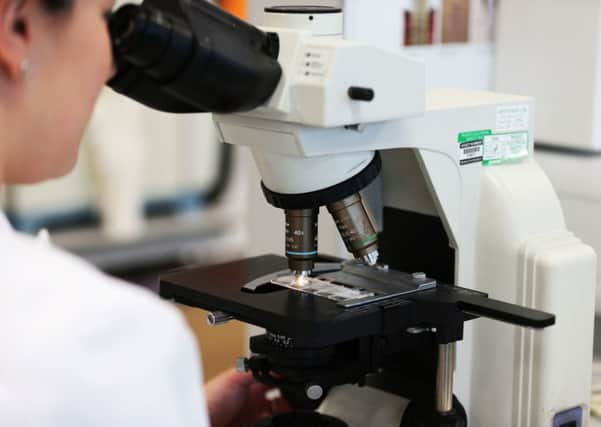Patients with brain tumours are '˜failed at every stage' MPs find


Patients with brain tumours - the biggest cancer killers of children and the under 40s - are let down at every stage, from diagnosis and treatment to research funding, MPs said.
The Petitions Committee concluded that brain tumour research - which is just 1.5 per cent of national cancer research spend - had been “seriously underfunded over decades, putting it far behind many other cancers in terms of improvements in outcomes.”
Advertisement
Hide AdAdvertisement
Hide AdNearly five times as much is invested into leukaemia and breast cancer research and “lack of leadership from successive Governments” and funding had left a gap in the UK research workforce, with many talented PhD students “having to change specialisms or work overseas.”
MPs said the Government needed to make a clear statement on whether it felt funding was adequate and said it “should and could” take a greater lead.
Politicians carried out the inquiry - the first ever as the result of an e-petition - after Maria Lister, the sister of an aspiring RAF pilot who died aged 26 from a brain tumour, raised 120,000 signatures.
Stephen Realf was forced to abandon military training and move back in with his parents in Rugby, Warwickshire. From being an “incredibly fit young man” he eventually lost his ability to walk, speak, eat and even get out of bed.
Advertisement
Hide AdAdvertisement
Hide AdUnlike other cancers, brain tumour incidence is rising. It was 25 per cent higher for women in 2012 than it was in 1970, and 23 per cent higher in men. Stephen was “supposedly lucky” because he lived six-and-a half years - only one in five survived beyond five years.
She said: “Before he died he said that he was worried he wasn’t going to have the opportunity to make a difference.
“I hope that even though he’s not here, the fact that he has inspired this campaign is going to be the legacy he leaves and I think he would be very proud of that.”
MPs said they were struck by common themes in peoples’ stories; lack of treatment options; poor survival rates and the huge burden of the disease on patients and their families.
Advertisement
Hide AdAdvertisement
Hide AdA recent study found 61 per cent only found out they had a tumour when they went to A&E. Because they are relatively rare “most GPs would typically only see two of three cases during their careers,” MPs were told.
The MPs concluded: “Funding for site-specific brain tumour research comes mostly from the voluntary sector. Charities have done incredible work...However they face difficulties in fundraising not least because of a lack of public awareness.
“The Government must not leave charities to tackle this devastating disease alone.”
Sue Farrington Smith, chief executive of Brain Tumour Research, which supported Ms Lister’s campaign, said the report made it clear patients had “been failed at every hurdle” and urged the Government to take up its “bold and clear” recommendations, including introducing an early diagnosis strategy for GPs and clinicians.
Advertisement
Hide AdAdvertisement
Hide AdGeorge Freeman, Minister for Life Science, said early diagnosis and treatment of cancer was a Government priority. He said: “The Government invests more than £1bn every year into health research and works closely with patients, charities and our world-leading life sciences industry to support further research into this devastating disease.”